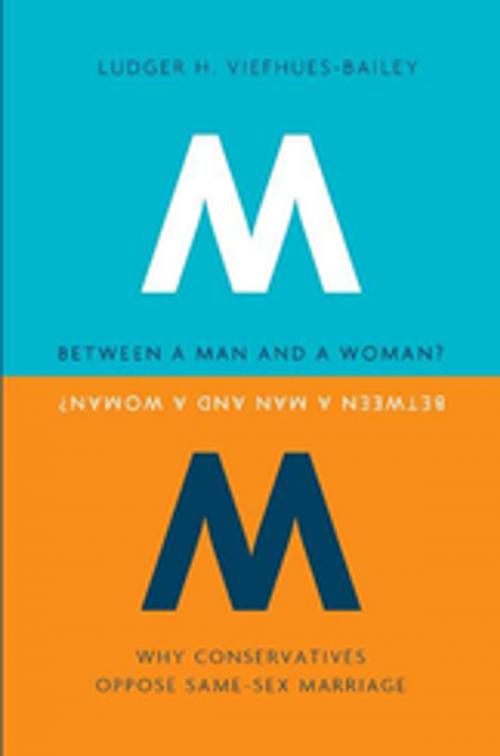Between a Man and a Woman?
Why Conservatives Oppose Same-Sex Marriage
Nonfiction, Religion & Spirituality, Christianity, Church, Church & State, Social & Cultural Studies, Social Science, Gender Studies| Author: | Ludger H. Viefhues-Bailey | ISBN: | 9780231521017 |
| Publisher: | Columbia University Press | Publication: | September 24, 2010 |
| Imprint: | Columbia University Press | Language: | English |
| Author: | Ludger H. Viefhues-Bailey |
| ISBN: | 9780231521017 |
| Publisher: | Columbia University Press |
| Publication: | September 24, 2010 |
| Imprint: | Columbia University Press |
| Language: | English |
Through a probing investigation of conservative Christianity and its response to an issue that, according to the statistics of conservative Christian groups, affects only a small number of Americans, Ludger Viefhues-Bailey alights on a profound theological conundrum: in today's conservative Christian movement, both sexes are called upon to be at once assertive and submissive, masculine and feminine, not only within the home but also within the church, society, and the state. Therefore the arguments of conservative Christians against same-sex marriage involve more than literal readings of the Bible or nostalgia for simple gender roles.
Focusing primarily on texts produced by Focus on the Family, a leading media and ministry organization informing conservative Christian culture, Viefhues-Bailey identifies two distinct ideas of male homosexuality: gender-disturbed and passive; and oversexed, strongly masculine, and aggressive. These homosexualities enable a complex ideal of Christian masculinity in which men are encouraged to be assertive toward the world while also being submissive toward God and family. This web of sexual contradiction influences the flow of power between the sexes and within the state. It joins notions of sexual equality to claims of "natural" difference, establishing a fraught basis for respectable romantic marriage. Heterosexual union is then treated as emblematic of, if not essential to, the success of American political life-yet far from creating gender stability, these tensions produce an endless striving for balance. Viefhues-Bailey's final, brilliant move is to connect the desire for stability to the conservative Christian movement's strategies of political power.
Through a probing investigation of conservative Christianity and its response to an issue that, according to the statistics of conservative Christian groups, affects only a small number of Americans, Ludger Viefhues-Bailey alights on a profound theological conundrum: in today's conservative Christian movement, both sexes are called upon to be at once assertive and submissive, masculine and feminine, not only within the home but also within the church, society, and the state. Therefore the arguments of conservative Christians against same-sex marriage involve more than literal readings of the Bible or nostalgia for simple gender roles.
Focusing primarily on texts produced by Focus on the Family, a leading media and ministry organization informing conservative Christian culture, Viefhues-Bailey identifies two distinct ideas of male homosexuality: gender-disturbed and passive; and oversexed, strongly masculine, and aggressive. These homosexualities enable a complex ideal of Christian masculinity in which men are encouraged to be assertive toward the world while also being submissive toward God and family. This web of sexual contradiction influences the flow of power between the sexes and within the state. It joins notions of sexual equality to claims of "natural" difference, establishing a fraught basis for respectable romantic marriage. Heterosexual union is then treated as emblematic of, if not essential to, the success of American political life-yet far from creating gender stability, these tensions produce an endless striving for balance. Viefhues-Bailey's final, brilliant move is to connect the desire for stability to the conservative Christian movement's strategies of political power.















